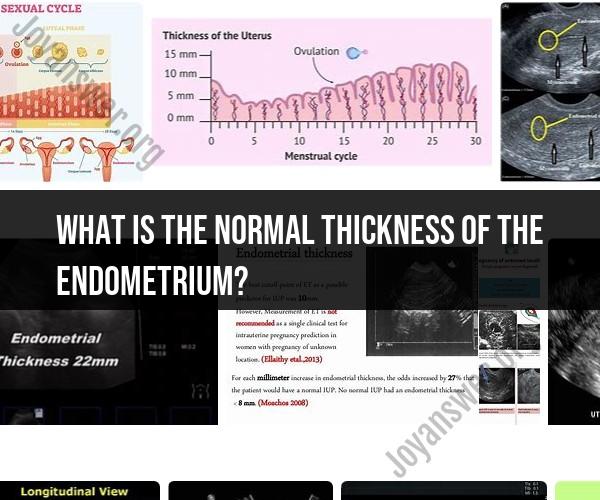What is the normal thickness of the endometrium?
The normal thickness of the endometrium, which is the lining of the uterus, can vary depending on a woman's age, menstrual cycle stage, and hormonal status. In premenopausal women, the endometrial thickness typically changes throughout the menstrual cycle. Here are some general guidelines for normal endometrial thickness:
Early Menstrual Cycle (Menstrual Period): During the early days of the menstrual cycle (days 1-5), the endometrial thickness is typically thin, usually less than 5 millimeters.
Mid-Cycle (Ovulation): In the middle of the menstrual cycle (around the time of ovulation, typically around day 14 in a 28-day cycle), the endometrial thickness may start to increase, but it remains relatively thin, often less than 10 millimeters.
Late Menstrual Cycle (Post-Ovulation): After ovulation, in the late menstrual cycle (days 15-28), the endometrial thickness continues to increase under the influence of the hormone progesterone. It can vary but is generally less than 16 millimeters.
Postmenopausal Women: In women who have gone through menopause and are no longer menstruating, the endometrial thickness should be very thin, often less than 5 millimeters. A thicker endometrium in postmenopausal women may raise concerns and require further evaluation.
It's important to note that these are general guidelines, and individual variations can occur. Additionally, specific medical conditions and situations, such as hormone therapy, pregnancy, or certain medical disorders, can affect endometrial thickness.
If there are concerns about abnormal bleeding, fertility issues, or other gynecological problems, a healthcare provider may use ultrasound or other diagnostic tests to measure the endometrial thickness and assess the uterine lining's health. Any significant deviations from the normal range may prompt further evaluation or treatment as needed. Therefore, if you have specific concerns about your endometrial thickness, it is advisable to consult with a healthcare professional for a thorough evaluation and guidance.











